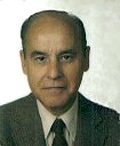Ben Tanoborn
We are just a decade-short from a century since Balliol College (Oxford) introduced interdisciplinary studies in philosophy, politics and economics (PPE) as a modern alternative to the study of the Classics. Academic programs in much of the world, adopting the granting of degrees which combined the study of these three fields, have been slowly discarding philosophy in the mix, making the three-strand braid just the enmeshment of two fields: politics and economics. After all, that’s the living reality and we are better served acknowledging it.
Politics and economics, or the better term, political economics, for the most part rules our lives: the political activity of the nation as a collective of economic groups and super- wealthy individuals, whatever the defining orthodoxy turns out to be. Any other influences on politics, principally religion, have also tended to disappear, except in the US (to some degree) and many of the Muslim nations, where religion continues to have a say, all too often a major say, in the body politic.
As the United States enters the final days in the much-hoped resolution of its “fiscal cliff,” there are a number of prominent individuals from both present and past – politicians, economists and business leaders – who regale us with their two-cent worth of admonition and advice. For the most part, that’s what the value is really worth.
One who always gets my goat, despite his mild manner demeanor and low-talking, and that I have often written about in denigrating terms, is Alan Greenspan, the 86-year-old former Chair of the Fed, infamous in my eyes for prostituting himself to the presidents who led us to the mess in which we find ourselves today: Reagan, Bush-Father, Clinton, and Bush-Son. I consider him the doting godfather of two economic bubbles (dot-com and housing) created during the 1998-2007 decade; also, the ill-advised monetary policy to satisfy the nation’s short-term-minded politicians devoid of vision, recklessly ready to act to promote their own personal interests.
This modern-day Nostradamus, vizier in economic matters to the White House Court, whether the sovereign-occupant dressed in red or in blue, can be held responsible for the redistribution of wealth, and the ever increasing wealth-gap between rich and poor, during his almost two-decade tenure as Chairman of the Federal Reserve. His advice has been predicated not on viable economics for the long term, but rather on helping those in power avert the consequences of then present economic and political realities… letting any unresolved short term consequences accumulate in a hidden vault to be opened in the future with dire explosive social and economic consequences. Now here we have this master of gobbledygook and economic deception taking a 180-degree turn, stating less than two weeks ago (November 16) that it would be a mistake to think that the US would be able to fix its unstoppable spending without deriving pain. Now that he is no longer at the helm of our economic fate, Greenspan becomes visionary and advocate of truth in economics. The Wizard has spoken, this time with the curtain up… let the recession begin, for the results from over $600 billion of cuts in federal spending and tax increases, scheduled to kick in at the start of calendar 2013, will be a small price to pay by a nation unwilling to give up its habit of consuming more than it produces… year, after year, after year.
Unfortunately, this is one time when he goes against the current, the mainstream of his economic peers, and he is right; the pseudo-visionary of the past has found a moment of lucidity at the twilight of his life. Mr. Greenspan has disrobed from the vestments of sortilege and magic, now ready to treat economics as a science, or an art-science.
Meantime, here is the American citizenry reverting to their pre-recession days, with the highest confidence level in four and a half years, starting to spend beyond their capacity to produce thanks to that misplaced confidence, the resurgence of home equity loans, and the promise of governing politicians that things are on the mend… when they really are not, and the job market continues to decay for jobs with a living wage.
Aristotle had it right twenty-three centuries ago: The good of man must be the end of the science of politics [The Nicomachean Ethics I.ii.]
Ben Tanosborn is a syndicated columnist. He can be reached at tanosborn@yahoo.com
Ben’s website: http://www.tanosborn.com/
